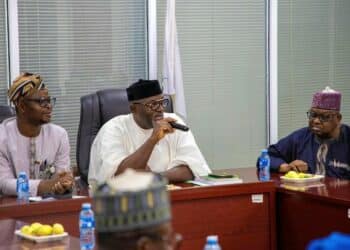MEMBERS of a United States Senate panel and corporations engaged in self-driving autos on Tuesday known for nationwide moderately than state regulation of automobiles to keep away from a patchwork of guidelines that would gradual growth.
Major automakers and know-how corporations are racing to develop and promote autos that may drive themselves, however, have complained that state and federal security guidelines are impeding testing and supreme deployment.
The guidelines will decide when and if a completely autonomous automobile might be pushed on roads. Differing guidelines from state to state would forestall the automobiles being pushed over state strains.
“If every state is left to go its own way without a unified approach, operating self-driving cars across state boundaries would be an unworkable situation and one that will significantly hinder… the eventual deployment of autonomous vehicles,” Chris Urmson, the top of Alphabet Inc’s (GOOGL.O) Google self-driving automotive program, informed the Senate Commerce Committee
Executives from General Motors Co (GM.N), Lyft and Delphi Automotive PLC (DLPH.N) echoed that place. Urmson stated 55 self-driving legal guidelines have been proposed in 23 states.
California in December proposed draft guidelines that might bar autonomous autos without human controls and a licensed driver, which Google opposes.
Duke University robotics professor Mary Cummings supported California’s transfer as a result she stated there was an absence of security proof and extra testing is required.
Senator Gary Peters, a Michigan Democrat, stated the United States “must … work to implement a consistent national policy.”
Joseph Okpaku, vice chairman of presidency relations at ride-hailing app agency Lyft, stated, “The worst possible scenario for the growth of autonomous vehicles is an inconsistent and conflicting patchwork” of legal guidelines.
Lyft and GM launched a rental program on Monday, step one towards constructing a community of autonomous autos as a result of it’s going to set up the infrastructure to deal with, preserve and set up a big fleet of automobiles.
Senator John Thune, a Senate Republican who chairs the Commerce Committee, stated technological challenges stay.
In January, the U.S. National Highway Traffic Safety Administration (NHTSA) stated it might waive some car security guidelines to permit extra driverless automobiles to function on U.S. roads as a part of a broader effort to hurry up their growth.
Transportation Secretary Anthony Foxx stated in January NHTSA will write pointers for self-driving automobiles within six months.









